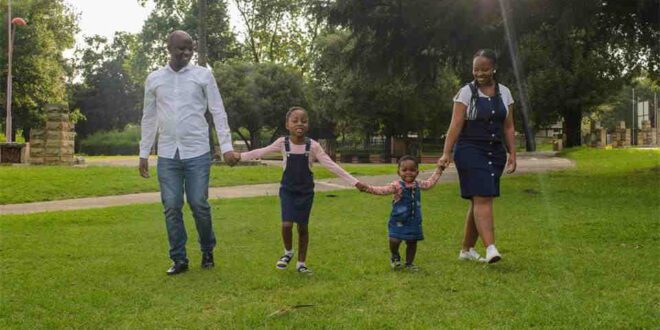Nobody expects the phone call that changes everything. Maybe it’s your neighbor saying they found your mom wandering around confused at 2 AM, or your dad admitting he hasn’t been taking his medications properly.
Sometimes it happens slowly – you notice the house getting messier during visits, unpaid bills stacking up on the counter, or your loved one losing weight because cooking has become too difficult.
When someone in your family starts struggling with daily tasks that used to be automatic, it feels overwhelming. The person who taught you how to tie your shoes or helped you with homework suddenly can’t remember to turn off the stove. These moments hit families hard because they signal a major shift in everyone’s roles and responsibilities.
Recognizing the Signs That Help Is Needed
The transition from independence to needing assistance rarely happens overnight. Most families notice small changes first – maybe your family member starts asking the same questions multiple times during phone conversations, or they mention feeling dizzy when getting up from chairs. Sometimes they stop driving at night or start ordering takeout instead of cooking meals they used to make easily.
Physical signs often become more obvious over time. You might notice they’re having trouble opening jars, reaching high shelves, or walking up stairs without getting winded. Their house might smell different, or you could spot expired food in the refrigerator.
These changes don’t mean your loved one is giving up – they’re just signals that their body or mind needs more support to stay safe and comfortable.
Emotional and cognitive changes can be harder to spot but equally important. Your family member might become more anxious about leaving the house, forget appointments they never missed before, or seem confused about things that used to be second nature. They might also become more isolated, skipping social activities they previously enjoyed.
Taking the First Steps Toward Providing Care
So, your family member needs help, but where do you even start? Most families don’t jump straight into full-time caregiving. Usually, it begins with smaller things – someone starts calling every day to check in, or family members take turns bringing groceries or driving to doctor appointments.
If you live in Pennsylvania, there are actually official programs that help family members become trained caregivers. You can learn how to become a caregiver for a family member in pa through structured programs that teach you the right way to provide care and connect you with resources that make the whole process easier.
The hardest part might be talking to your family member about accepting help. Some people get really embarrassed when they can’t do things they used to do easily. Others actually feel relieved when someone finally notices they’ve been struggling. These conversations go better when you focus on helping them stay as independent as possible while keeping them safe.
Making Practical Changes at Home
Safety becomes the top priority when someone starts having trouble managing daily activities. This might mean installing grab bars in the bathroom, improving lighting in hallways, or removing throw rugs that could cause falls. Simple changes often make the biggest difference in helping someone stay comfortable in their own space.
Managing medications correctly becomes crucial too. Setting up pill organizers, creating reminder systems, or having someone check in during medication times can prevent dangerous mistakes. Many families find that taking over grocery shopping and meal preparation helps ensure their loved one eats regularly and nutritiously.
Financial management often needs attention as well. Bills might go unpaid, checks might be written incorrectly, or your family member might become vulnerable to scams. Taking over these responsibilities requires careful planning and often involves legal steps to ensure everything is handled properly.
Balancing Everyone’s Needs
Becoming a caregiver for a family member affects everyone in the household. If you have your own job, children, or other responsibilities, fitting in caregiving tasks requires careful planning and sometimes difficult choices. Many families find success by dividing responsibilities among multiple relatives or setting up schedules that rotate duties.
The person receiving care also needs time to adjust to their changing circumstances. They might feel frustrated about losing independence or worried about being a burden on family. Patience and clear communication help everyone navigate these emotional challenges while building new routines that work for everyone involved.
Some families discover that bringing in outside help for certain tasks – maybe housecleaning or transportation – allows them to focus their energy on the personal care and companionship that means the most to their loved one.
Building a Support System That Works
Successful family caregiving rarely happens in isolation. Most families benefit from connecting with other people going through similar experiences, whether through support groups, online communities, or informal networks of friends and neighbors.
Healthcare providers play an important role too. Regular check-ups help monitor your family member’s condition and adjust care plans as needs change. Many doctors and nurses can provide specific guidance about managing chronic conditions or preventing complications.
Moving Forward Together
Taking care of a family member who can no longer manage independently represents both a challenge and an opportunity to strengthen family bonds. While the responsibilities can feel overwhelming at first, many families find that working together through difficult times creates deeper connections and meaningful memories.
The situation will continue evolving as your loved one’s needs change over time. Staying flexible and open to adjusting your approach helps everyone adapt to new circumstances while maintaining dignity and quality of life. Remember that asking for help when you need it isn’t a sign of failure – it’s part of providing the best possible care for someone you love.
 khamush.com Lifestyle | Motivation | Poems
khamush.com Lifestyle | Motivation | Poems



